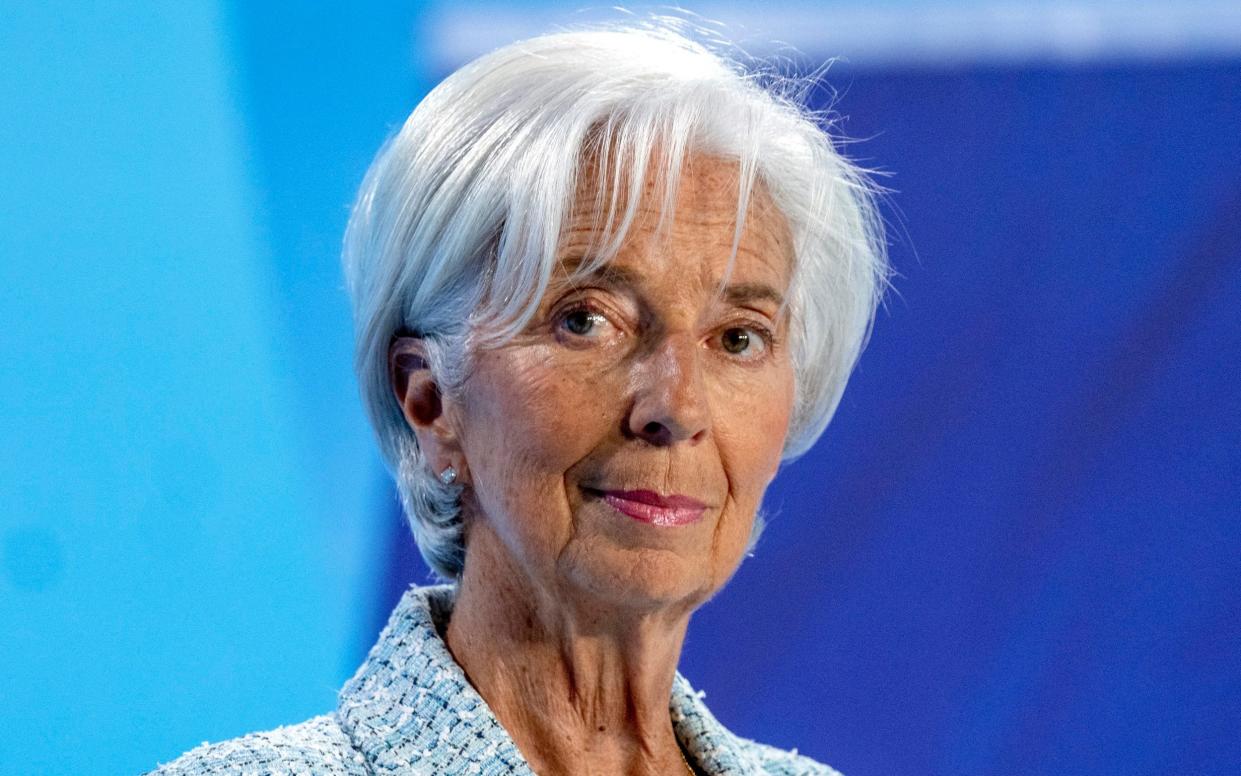Le Pen must not launch reckless spending spree, warns Lagarde

The president of the European Central Bank (ECB) has urged France to bring runaway borrowing back under control amid fears Marine Le Pen will rely on debt to fund high-spending policies.
Christine Lagarde made a veiled threat to the leader of the National Rally party on Tuesday, just days after she topped the first round of voting in France’s snap election.
Ms Lagarde said: “There is a framework within which members of the EU have to operate, have to control the direction of their debt, have to make sure that it is sustainable going forward through the efforts that they deploy, and have to keep their deficit on watch.”
Ms Lagarde was speaking at the ECB’s annual conference in Sintra, Portugal, weeks after the European Commission reprimanded France for breaching fiscal rules.
This coincided with the EU forcing France into its excessive deficit procedure as it warned the country’s borrowing is too far above the official limit of 3pc of GDP and must be brought down.
France borrowed the equivalent of 5.5pc of GDP last year, while its debt at 110pc of GDP is set to keep rising.
French finances have been under heightened scrutiny ever since Emmanuel Macron called a snap election last month. This has raised the prospect of Ms Le Pen’s National Rally party gaining power, which would allow her to pursue an economic programme of lower taxes and high spending.
When asked about rising French borrowing costs, Ms Lagarde said the ECB is watching markets carefully.
She said: “I am not going to comment on the political situation of any of the member states, particularly those facing elections at the moment.
“But obviously the ECB has to do what it has to do. Our mandate is price stability.
“Price stability is obviously relying on financial stability, and we are attentive to that because it is part of our job, and we will continue to do so.”
However, it is not only in France where borrowing costs are rising.
US borrowing costs recently jumped in response to the Supreme Court ruling that Donald Trump cannot be prosecuted for official actions, boosting his chances of winning the presidential election in November.
The impact of a prospective second term for Mr Trump rippled through markets as traders responded to the possibility of him increasing America’s ballooning debt pile.
Predictions of greater borrowing led to yields on US Treasuries rising on Tuesday, which impacts the amount of interest the government pays buyers of its debt. Higher yields also affect global borrowing costs as the US market is typically used as a benchmark by investors to influence other countries’ interest rates.
Jerome Powell, chairman of the US Federal Reserve, urged politicians to get borrowing under control.
Speaking alongside Ms Lagarde, Mr Powell said: “The US is running a very large deficit at a time when we are at full employment.
“The level of debt that we have is not unsustainable. The path that we are on is unsustainable. That is completely non-controversial. I would have thought that this is something that should be a top-level issue.
“This should be a real focus going forward, how do we get back to a sustainable path? You cannot run these kinds of deficits in good economic times for very long.
“In the longer run, we will have to do something sooner or later, and sooner would be better than later.”
It came as S&P Global Ratings warned of a market crunch if major economies do not slash borrowing.
“Only a sharp deterioration of borrowing conditions could persuade G7 governments to implement more resolute budgetary consolidation at the present stage in their electoral cycles,” the ratings agency warned.
“We estimate that for the US, Italy and France the primary balance would have to improve by more than 2pc of GDP cumulatively for their debt to stabilise; this is unlikely to happen over the next three years.”


